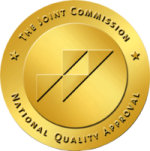UTHealth Houston Harris County Psychiatric Center
Eating Disorders
Types of Eating Disorders • Medical Complications • Causes • Signs & Symptoms • Treatments • Medications • Psychotherapy • How Family & Friends Can Help
Eating disorders are psychological illnesses born from the desire to achieve the "ideal figure." Victims become obsessed with food and body weight. They often put themselves on strict diets that tend to lead to starvation. Eating disorders alter victims' perceptions to the extent that victims "feel fat" or "look fat" in their own minds, while in reality they are withering away.
The majority of those afflicted with eating disorders are adolescent and young adult women. Many women these ages are under tremendous pressure from society, from peers and from themselves to look good. What may begin as an innocent diet and exercise program can easily become an overwhelming fear of being fat. Eating disorders often are a sign of or are accompanied by other mental or emotional disorders, such as low self-esteem and depression. Eating disorders can cause other serious medical conditions, such as malnutrition and heart problems. Left untreated, the results could be irreversible damage or even death.
Generally, eating disorders fall into two categories, each with its own unique patterns.
Anorexia Nervosa
Anorexia nervosa causes its victims to intentionally starve themselves. Some even starve themselves to death. People with anorexia feel their hunger pains, but the overwhelming fear of gaining weight and being fat usually overrides any desire to ease the hunger. Over time, a victim may lose excessive amounts of body weight. But a person with anorexia will continue to see themselves as overweight, when in reality they are skin and bones
People with anorexia develop strange behaviors around food. They might carry out eating rituals that involve strictly measuring every food item, or refuse to eat in front of others. They may prepare meals for others and not have any of the food themselves. Often, eating habits are accompanied by strict exercise schedules to keep weight off.
Bulimia Nervosa
Unlike those with anorexia, people with bulimia nervosa do eat. In fact, they usually go through spells of excessive eating, called "binges." But afterward, the pain of a full stomach, the guilt of the binge and/or the fear of gaining weight causes them to rid their bodies of the food by forced vomiting, laxative or diuretic abuse, enemas or other means of "purging." They may repeat this "binge-and-purge" cycle several times a week or even several times a day, usually in private. Because people with bulimia often maintain body weight, the disorder is easily hidden.
Like those with anorexia, people with bulimia may exercise and diet heavily. In fact, many with anorexia also eventually develop bulimia.
Eating disorders cause a number of medical complications.
People with anorexia risk irreversible damage to the heart and brain. As starvation sets in, the body slows down certain functions to conserve energy. Breathing, pulse and blood pressure drop, and thyroid function slows. Nails and hair become brittle, and skin dries, yellows and grows a layer of soft hair called lanugo. Dehydration causes constipation. Reduced body fat leads to lowered body temperature and the inability to withstand cold.
Anemia, swollen joints and reduced muscle mass are common to anorexia. People may also experience irregular heartbeat or heart failure.
In women, anorexia often causes monthly menstrual cycles to stop. Afterward they may begin to lose calcium from their bones, increasing the risk of developing osteoporosis, a condition where bones become brittle and susceptible to breaking.
Bulimia also can cause severe damage to the body. Depriving the body of needed minerals can lead to heart failure, and constant purging can damage the stomach and intestines. The acids in vomit can cause injury to fingers frequently pushed down the throat to induce vomiting and can wear down tooth enamel, leading to tooth decay. The throat is constantly sore or inflamed and may bleed.
Laxative abuse can lead to irritation of the colon, and diuretic abuse can cause kidney problems. Dehydration is common.
Eating disorders can also lead to other mental disorders, most commonly depression. Any of these illnesses comes with its own sets of implications.
Researchers speculate the causes of eating disorders, considering several factors. One possible cause is body image. Our society places great value in beauty and thin bodies, which for most are unattainable. Yet the pressure is still there; thin is beautiful; thin is sexy; thin is successful; and many succumb to it, falling into cycles of one diet failure after another.
Scientists believe eating disorders may run in families. For some already at risk, a simple comment or criticism from a close friend or loved one may be enough to trigger an eating disorder.
Biochemistry plays a role in eating disorders. People with eating disorders have imbalances in neurotransmitters; chemicals that allow brain cells to communicate; that control appetite and digestion, sleep, mood, thinking and memory. Similar imbalances are known to cause some other mental disorders, such as depression. Since many people with eating disorders also develop depression, scientists believe there might be a link between these disorders.
People who suffer from an eating disorder will likely display one or more of the following symptoms and behaviors:
- Excessive weight loss in a short period of time
- Continuation of dieting beyond healthy body weight
- Obsession with exercise
- Constant dissatisfaction with appearance; belief that they are fat
- Strange eating rituals
- Eating in private
- Binge eating; eating unusually large amounts of food; with no apparent weight gain
- Frequent and long trips to the bathroom, particularly after eating, to induce vomiting
- Excessive use of laxatives or diuretics, serious depression alcohol or drug abuse
In the case of an eating disorder, getting treatment as soon as possible is critical. The longer the disorder persists, the harder it is to overcome. The first step is to have a complete medical evaluation to rule out other disorders or medical problems.
Once an eating disorder is diagnosed, the physician can determine whether the patient is in danger and requires hospitalization. While many patients are successfully treated as outpatients, those with severe weight loss, problems with metabolism, depression or risk of suicide, or serious binge-and-purge behaviors usually require hospitalization. Effective treatment regimens often involve a team of specialists who employ a variety of methods and therapies.
Physicians commonly prescribe antidepressants to treat eating disorders. These medications help level any chemical imbalances in the brain that cause or complicate the disorder. Patients begin to feel better about themselves and develop control over their negative eating behaviors. In the case of anorexia, medications help reduce the obsessive behaviors so that patients may gain body weight.
While medication helps level chemical imbalances, psychotherapy helps patients to understand and change their negative thoughts and behaviors. Treatments often include a combination of individual psychotherapy, family therapy and group therapy.
During individual psychotherapy, patients learn to recognize the thoughts and feelings that trigger negative behaviors, and new ways to respond to those thoughts and feelings. Family therapy helps families understand the disorder and become involved in the patient's recovery. Group therapy brings patients together to share experiences and draw support from one another.
Treatment of eating disorders can be highly successful. But
it is critically important to recognize the disorder, begin treatment
as soon as possible, and stick with the treatment.
How Family and Friends Can Help
The most important thing family and friends can do for a person with an eating disorder is to help him or her get treatment. This may involve encouraging the patient to stay with the treatment, going with the patient to the doctor, or even monitoring whether the patient is taking medication.
Family members and friends should learn as much as possible about their loved one's disorder so they can help the person understand his or her problem. Another important way to help is to offer emotional support and understanding, patience, affection and encouragement. This will help the patient stay with the treatment.


